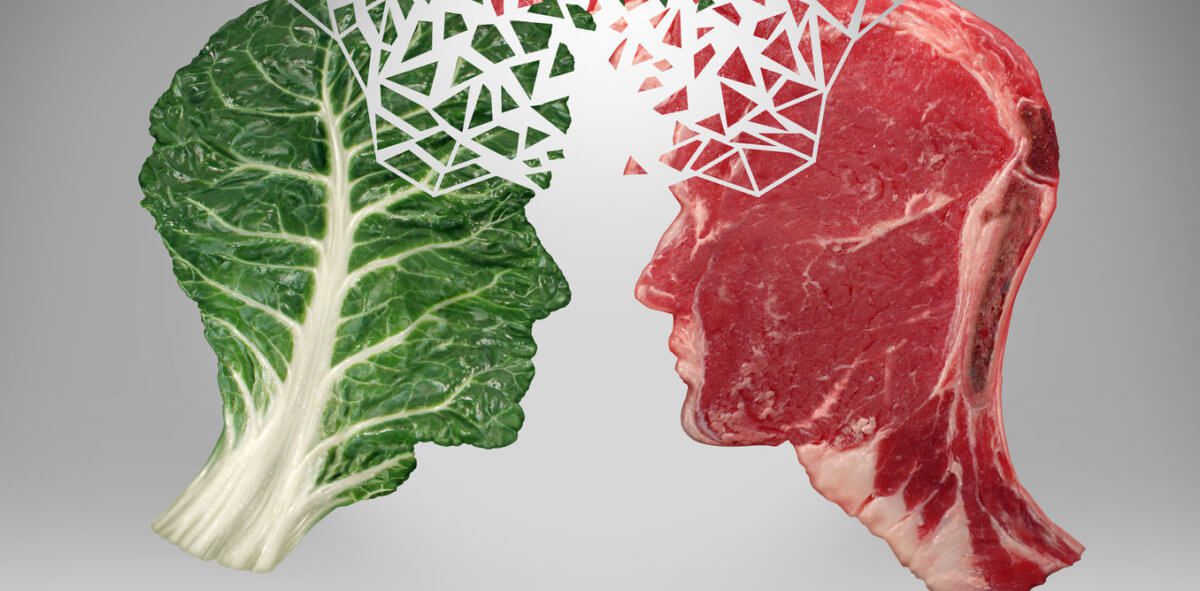I was recently at lunch with a friend: the two of us, seated comfortably with our coffees and waiting for our food. Our meals arrived, and the staff member placed them in front of us. In front of me was a classic beef burger and in front of her, my friend, was the vegan variant. Seems chill. Time to start eating, right?
Nope. After switching our meals, I tell my friend that this is actually a common occurrence. As someone who identifies as male, chooses not to eat meat, and can’t really eat dairy, I’m regularly finding myself swapping meals back with my female friends when eating out. You might quickly brush this aside as a mistake but, it happens enough now that I believe it is indicative of something broader. The food we consume is inherently gendered. Our society inextricably associates eating meat with masculinity and, as a result, places expectations upon how men must eat and act. Anything to the contrary is thus feminised, viewing plant-based eating as the antithesis of masculinity. Thus, these associations have implications on our eating habits and which plate is put in front of us while dining out.
You only have to look at the language used in recipe books and websites to see that plant-based eating has become feminised. Titles such as Ms. Cupcake: The Naughtiest Vegan Cakes in Town and Skinny Bitch dangerously associate veganism and vegetarianism with dieting and body consciousness. The target audience is very clearly women – creating the perception that plant-based eating is a choice that should be motivated by health and meeting patriarchal standards. Hence, the gendering of vegetarianism and veganism in this way contextualises it as something that exists for the consumption (both literally and figuratively) of men. It, therefore, becomes something that men can observe and benefit from, but not actively take part in.
Taking this one step further, our society actively perceives the association between men and plant-based eating to be negative. One quick online search with words like ‘men’ and ‘vegetarian’ shows this to be true. The first few pages of search results tell us about how vegetarianism is difficult for men, or how it can lead to mental illness, lower sperm counts, and, not to mention, how not eating meat makes it harder to produce muscle. All of these results reinforce social perceptions that not eating meat somehow threatens masculinity. These norms go deeper when you think about how pop culture and mainstream media portray the ‘ideal’ man: muscly, lean, tall and strong. Manly. Mainstream advertising explicitly links eating meat with a desirable manliness, and this further intersperses throughout the culturally masculine fabrics of sport, bars, and providing for a family.
Already holding positions of power over other people, the expected consumption of meat extends this power over animals too. Historically and biologically, we learn about men being the hunters. Socially, we talk about men providing for the family and literally bringing home the bacon. We teach boys that they must eat meat and drink milk if they want to grow to be big and strong. These teachings then translate into perceptions as adults around protein-rich diets and keeping fit. It is no wonder, then, that we so explicitly view veganism and vegetarianism as anti-masculine.
If we can – even partially – divorce the gendering of our eating habits, we can start being more open toward how we perceive plant-based eating. The things that we choose to eat should not have anything to do with gender or the roles that society expect us to occupy. Swapping that burger with my friend is not indicative of my feigning masculinity, and it is not indicative of her rejecting her femininity. The things we do – or don’t – consume are irrelevant to gender; it’s about choosing to put things in your mouth that you want, not what someone else tells you to. Despite popular caveman rhetoric, manly doesn’t necessarily equal meaty.
Note: this article refers to the male-female binary for the sake of making an argument. Negative experiences associated with the gendering of food and eating are not exclusive to those who identify (or present) as male or female.
We acknowledge the Ngunnawal and Ngambri people, who are the Traditional Custodians of the land on which Woroni, Woroni Radio and Woroni TV are created, edited, published, printed and distributed. We pay our respects to Elders past and present. We acknowledge that the name Woroni was taken from the Wadi Wadi Nation without permission, and we are striving to do better for future reconciliation.
